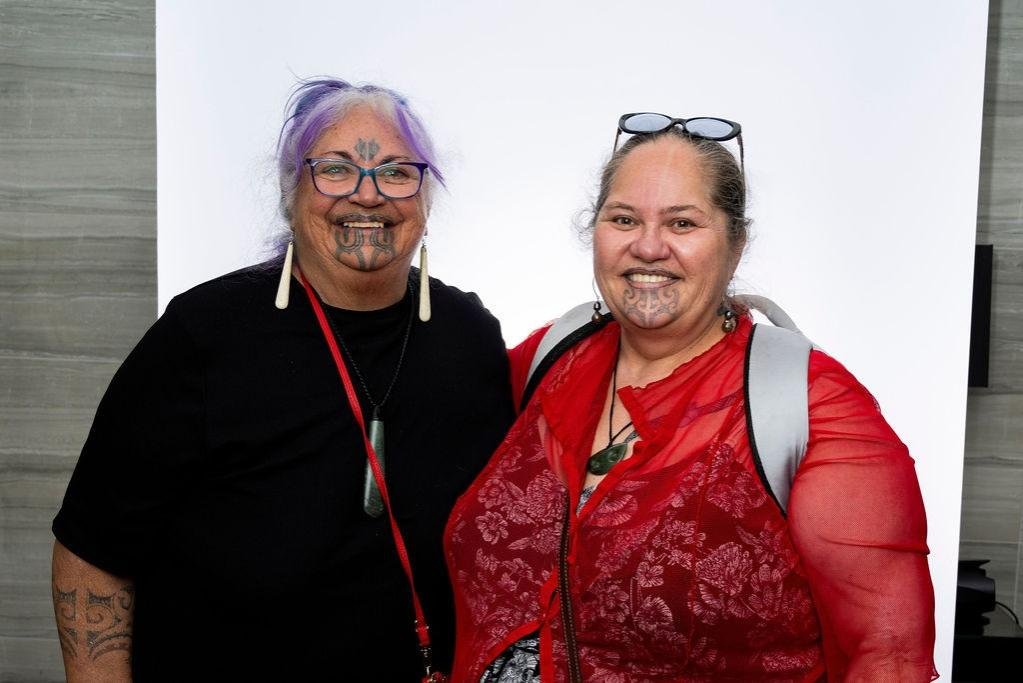
Rangahau Residency Opportunity
Dr Te Rita Papesch and Haani Huata-Allen, mother and daughter together at Hui Taumata 2024.
Residency Details
Applications open on 1st May 2025 for Kaimahi to apply for Residency within Te Wānanga o Aotearoa. Applicants will be supported for 3 months to complete an existing piece of work such as a PhD, a substantial piece of writing or set of writings, eg a number of journal articles or book chapters, a podcast series, toi artefact/exhibition, a film documentary or other project as proposed that constitutes 3-months’ work. The residency must begin between 1st July 2025 and 30th October 2025 and run for 3 months consecutively.
Kaimahi must hold permanent roles of at least 0.5FTE within Te Wānanga o Aotearoa or a fixed term contract of 3 years or more. If this is something you are interested in exploring, Te Manawahoukura invites you to apply.
The applicant can propose a start date though it will be somewhat dependent on ensuring cover is in place for their substantive role before the residency can begin.
Please email your completed application to us: rangahau@twoa.ac.nz
CALL FOR 2025 APPLICATIONS
Opens: 1st May 2025
Closes: 14th May 2025
Following in the footsteps of her māmā
Haani Huata-Allen (nō Waikato-Maniapoto, Ngāti Kahungunu, Ngāti Porou, Ngāti Whakaue me Ngāti Pikiao) wears many pōtae (hats); among them judge at Te Matatini o te Kāhui Maunga, kaimahi at Te Wānanga o Aotearoa, and inaugural recipient of the Te Manawahoukura Residency.
From March to May 2024, she received financial support to take time away from her mahi to focus on completing her PhD, ‘Reo Revitalisation through Kapa Haka.’
“We all have a doctorate within us – it's just finding the time and still having the pūtea to pay the mortgage.”
Amid busy lives, the residency offers selected kaimahi a valuable opportunity to concentrate on their Rangahau projects, such as PhD studies, multimedia art, publishing, or creating educational resources. For 3 months, their usual work responsibilities are covered, allowing them dedicated time to focus.
Haani acknowledged that the residency was groundbreaking for Te Wānanga o Aotearoa and a valued space to be in as the recipient but emphasised that timing it right is key to get the best out of the experience.
She recognises now that her own timing could have been better.
“Ideally, either during your initial proposal writing or in your last 6 months of thesis writing.”
She’s long believed in the importance of continuing to learn and challenge one’s thinking, but it was her mum’s example that motivated her career in education and inspired her to pursue a doctoral degree.
She followed her mum – her biggest inspiration – to Christchurch from her Waikato home, where she taught te reo and mātauranga Māori, even helping to develop and design a te reo Māori immersion degree.
She has been a kaimahi of Te Wānanga o Aotearoa since July 2011, first as a Kaiako Matua at Raroera campus, then with Ako Wānanga supporting kaiako best practice, and eventually in her current role of leadership development.
Being supported to focus solely on her PhD during the residency means Haani is ever closer to finishing, a goal she hopes to achieve in 2025.
Offered for the first time in 2024, the residency was created to build internal Rangahau capacity and capability, increase the amount of Indigenous PhD holders and publications, enhance the research profile of Te Manawahoukura, and boost the PBRF standing of Te Wānanga o Aotearoa.
Becky Kiddle, Director Te Manawahoukura, confirms there is much value to be gained from supporting Rangahau within a Wānanga context through the residency.
“Above all, we want to encourage and produce Rangahau that is effective, meaningful, and impactful.”
Te Manawahoukura was established in mid-2023 to reinvigorate a culture of Rangahau by focusing on Indigenous inquiry and honouring Māori ways of knowing, doing, and being. The annual Te Manawahoukura Residency is available only for kaimahi of Te Wānanga o Aotearoa. Applications for 2025 open on Thursday, 1 May 2025.

